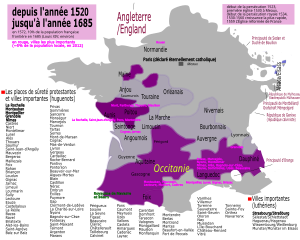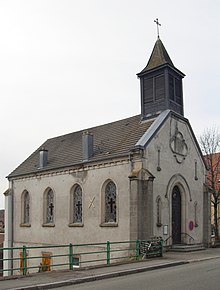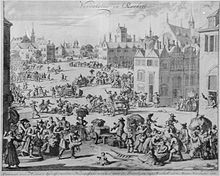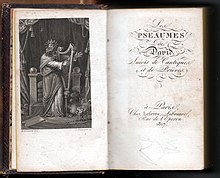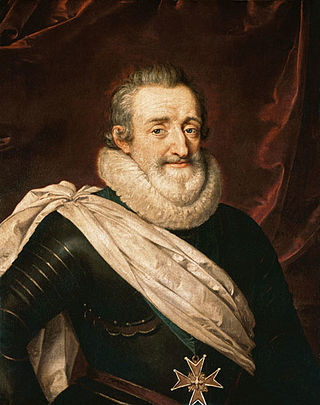
The Edict of Nantes was signed in April 1598 by King Henry IV and granted the minority Calvinist Protestants of France, also known as Huguenots, substantial rights in the nation, which was predominantly Catholic.

The Huguenots are a religious group of French Protestants who held to the Reformed (Calvinist) tradition of Protestantism. The term, which may be derived from the name of a Swiss political leader, the Genevan burgomaster Besançon Hugues (1491–1532), was in common use by the mid-16th century. Huguenot was frequently used in reference to those of the Reformed Church of France from the time of the Protestant Reformation. By contrast, the Protestant populations of eastern France, in Alsace, Moselle, and Montbéliard, were mainly Lutherans.

The French Wars of Religion were a series of civil wars between French Catholics and Protestants from 1562 to 1598. Between two and four million people died from violence, famine or disease directly caused by the conflict, and it severely damaged the power of the French monarchy. One of its most notorious episodes was the St. Bartholomew's Day massacre in 1572. The fighting ended with a compromise in 1598, when Henry of Navarre, who had converted to Catholicism in 1593, was proclaimed King Henry IV of France and issued the Edict of Nantes, which granted substantial rights and freedoms to the Huguenots. However, Catholics continued to disapprove of Protestants and of Henry, and his assassination in 1610 triggered a fresh round of Huguenot rebellions in the 1620s.

The Waldensians, also known as Waldenses, Vallenses, Valdesi, or Vaudois, are adherents of a church tradition that began as an ascetic movement within Western Christianity before the Reformation. Originally known as the Poor of Lyon in the late twelfth century, the movement spread to the Cottian Alps in what is today France and Italy. The founding of the Waldensians is attributed to Peter Waldo, a wealthy merchant who gave away his property around 1173, preaching apostolic poverty as the way to perfection.

The Edict of Fontainebleau was an edict issued by French King Louis XIV and is also known as the Revocation of the Edict of Nantes. The Edict of Nantes (1598) had granted Huguenots the right to practice their religion without state persecution. Protestants had lost their independence in places of refuge under Cardinal Richelieu on account of their supposed insubordination, but they continued to live in comparative security and political contentment. From the outset, religious tolerance in France had been a royal, rather than popular, policy.
Camisards were Huguenots of the rugged and isolated Cévennes region and the neighbouring Vaunage in southern France. In the early 1700s, they raised a resistance against the persecutions which followed Louis XIV's Revocation of the Edict of Nantes, making Protestantism illegal. The Camisards operated throughout the mainly Protestant Cévennes and Vaunage regions including parts of the Camargue around Aigues Mortes. The revolt broke out in 1702, with the worst of the fighting continuing until 1704, then skirmishes until 1710 and a final peace by 1715. The Edict of Tolerance was not finally signed until 1787.

The Dragonnades was a policy implemented by Louis XIV in 1681 to force French Protestants known as Huguenots to convert to Roman Catholicism. It involved the billeting of dragoons of the French Royal Army in Huguenot households, with the soldiers being given implied permission to mistreat the inhabitants and damage or steal their possessions. Soldiers employed as part of this policy were derisively referred to as "missionary dragoons".

A united church, also called a uniting church, is a denomination formed from the merger or other form of church union of two or more different Protestant Christian denominations, a number of which come from separate and distinct denominational orientations or traditions. Multi-denominationalism, or a multi-denominational church or organization, is a congregation or organization that is affiliated with two or more Christian denominations, whether they be part of the same tradition or from separate and distinct traditions.
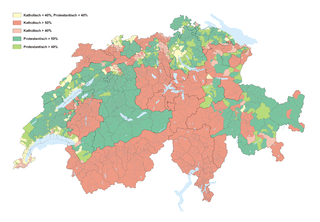
The Reformed branch of Protestantism in Switzerland was started in Zürich by Huldrych Zwingli and spread within a few years to Basel, Bern, St. Gallen,(Joachim Vadian), to cities in southern Germany and via Alsace to France.

The Reformed Church of France was the main Protestant denomination in France with a Calvinist orientation that could be traced back directly to John Calvin. In 2013, the Church merged with the Evangelical Lutheran Church in France to form the United Protestant Church of France.
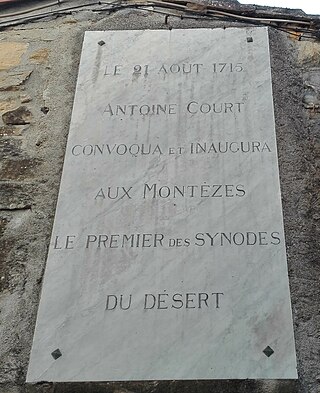
Antoine Court was a French reformer called the "Restorer of Protestantism in France." He was born in Villeneuve-de-Berg, in Languedoc, on 27 March 1696, although at least one source lists a different date. His parents were peasants, adherents of the Reformed church, which was at the time a target of state persecution following the 1685 Edict of Fontainebleau.
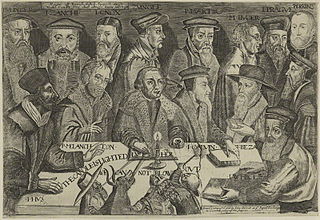
Reformed Christianity originated with the Reformation in Switzerland when Huldrych Zwingli began preaching what would become the first form of the Reformed doctrine in Zürich in 1519.

The Huguenot Church, also called the French Huguenot Church or the French Protestant Church, is a Gothic Revival church located at 136 Church Street in Charleston, South Carolina. Built in 1844 and designed by architect Edward Brickell White, it is the oldest Gothic Revival church in South Carolina, and has been designated a National Historic Landmark and listed on the National Register of Historic Places. The congregation it serves traces its origins to the 1680s, and is the only independent Huguenot church in the United States.
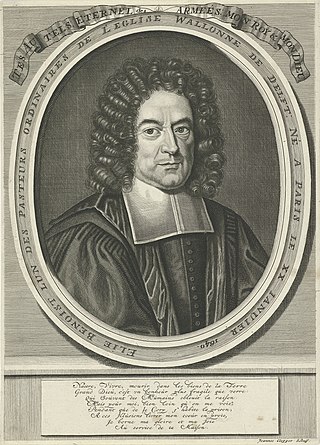
Élie Benoist, was a French Protestant minister, known as a historian of the Edict of Nantes.

The Edict of Versailles, also known as the Edict of Tolerance, was an official act that gave non-Catholics in France the access to civil rights formerly denied to them, which included the right to contract marriages without having to convert to the Catholic faith, but it denied them political rights and public worship. The edict was signed by King Louis XVI on 7 November 1787, and registered in the Parlement of Paris during the Ancien Régime on 29 January 1788. Its successful enactment was caused by persuasive arguments by prominent French philosophers and literary personalities of the day, including Anne-Robert-Jacques Turgot; Étienne François, duc de Choiseul, Americans such as Benjamin Franklin and especially the joint work of Guillaume-Chrétien de Lamoignon de Malesherbes, minister to Louis XVI, and Jean-Paul Rabaut Saint-Étienne, spokesman for the Protestant community in France.
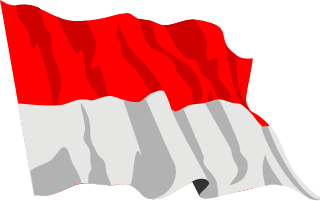
The Protestant Reformed Church of Alsace and Lorraine is a Calvinist denomination in Alsace and northeastern Lorraine, France. As a church body, it enjoys the status as an établissement public du culte.
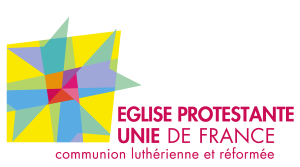
The United Protestant Church of France is the main and largest Protestant church in France, created in 2013 through the unification of the Reformed Church of France and the Evangelical Lutheran Church of France. It is active in all parts of Metropolitan France apart from Alsace and Moselle, where the Union of Protestant Churches of Alsace and Lorraine is established. It has 250,000 members and its orientation is both Calvinist and Lutheran, mainly in that it incorporates both kinds of parishes throughout the country. Ordination of women and blessings of same-sex marriages are allowed. The church believes abortion may be allowable under certain circumstances.

The Protestant Church of the Augsburg Confession of Alsace and Lorraine is a Lutheran church of public-law corporation status in France. The ambit of the EPCAAL comprises congregations in Alsace and the Lorrain Moselle department.

In Protestant usage, a consistory designates certain ruling bodies in various churches. The meaning and the scope of functions varies strongly, also along the separating lines of the Protestant denominations and church bodies.

